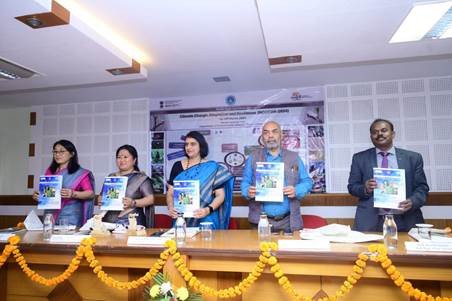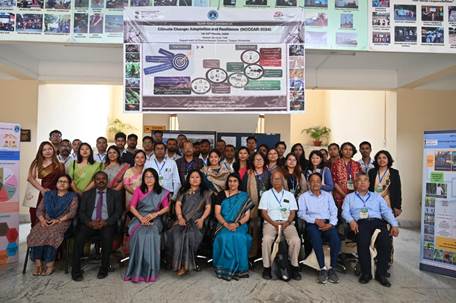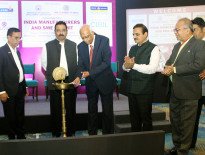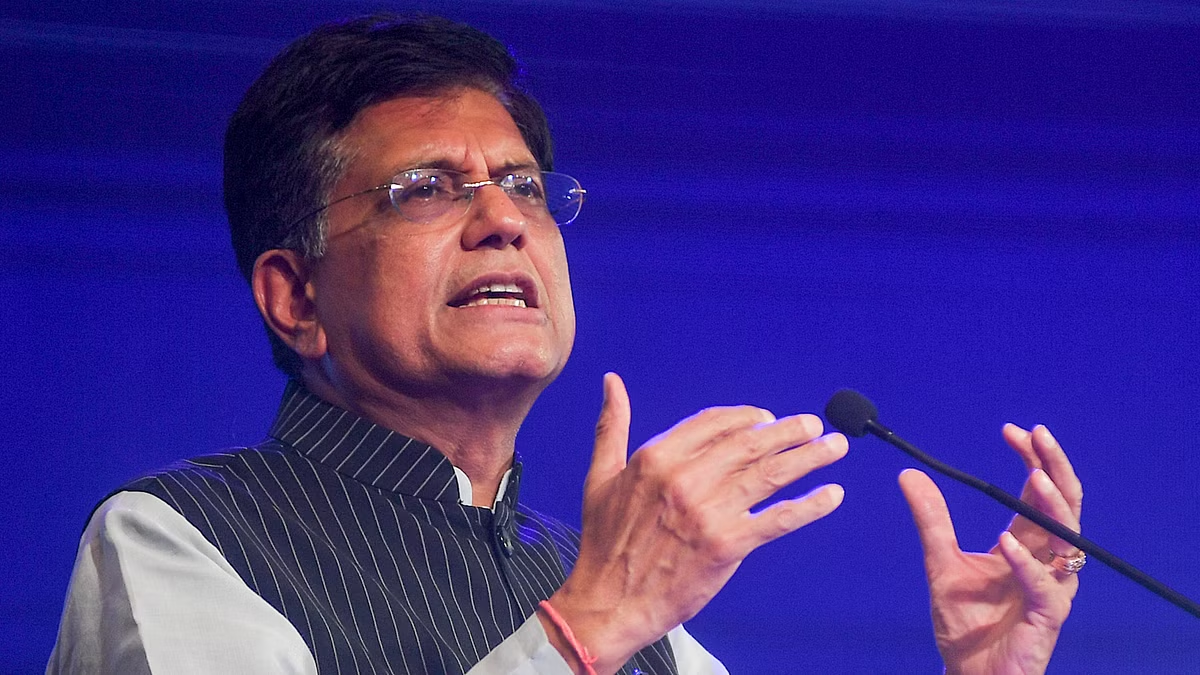Share

The need for adaptive strategies in agriculture, conservation efforts to mitigate detrimental effects of climate change on natural habitat, vegetation and vital bioresources were highlighted at the North-East Conclave on Climate Change: Adaptation and Resilience (NCCCAR-2024), which brought together diverse group of stakeholders from all Northeastern states.
The two-day conclave was hosted by DST’s Centre of Excellence at the Department of Environmental Science at Tezpur University to foster the development of innovative solutions to tackle climate change issues, specifically tailored to the unique regional climate of northeast India.
Underscoring the growing global concern regarding climate change, Dr. Anita Gupta Head, Climate, Energy and Sustainable Technology (CEST) Division at the Department of Science and Technology (DST) highlighted the importance of the “5 E’s” – ecology, environment, economy, ecosystem, and energy – and the intricate dynamics among them. She pointed out that the climate-change related issues of the highly diverse ecosystem of Northeast India needs to be studied thoroughly.
Dr. Gupta also emphasised on DST’s goal of creating a substantial research community dedicated to climate-related studies and DST’s involvement in the Conference of Parties (COP).
“According to DST supported research, Northeastern states are most vulnerable and prone to climate risks. There is an urgent need for research institutions in the region to collaborate and share models, data, and maps to assist the government departments, NGOs, and development practitioners in developing adaptation policies and programs. The contributions of DST in the development of climate change research and capacity building in the Northeastern states should be taken advantage of,” said Professor N H Ravindranath, an expert on climate change and sustainable technologies from IISc Bangalore.
Vice-Chancellor of Tezpur University, Prof. Shambhu Nath Singh discussed the contributions of the Department of Environmental Science at Tezpur University in various research fields related to environmental science while Dr. Susheela Negi Senior Director/Scientist F, Climate, Energy and Sustainable Technology (CEST) Division at DST, highlighted the initiative of Department of Science and Technology under the missions NMSKCC and NMSHE.
Both these missions are dedicated to addressing climate change and devising adaptation strategies. Dr. Negi underlined the urgent need for prioritizing adaptation, intervention, and enhancing adaptive capacity in these states.
The event brought together stakeholders including scientists, academicians, researchers, planners, policymakers, and experts in the field and provided a common platform for the exchange of knowledge and ideas to address significant climate change related issues in the northeast region.
Their discussions focused on climate change-induced impacts such as habitat loss, decreased carbon storage, decline in crop yields, changes in the distribution of wild plant species and on how altered water cycles can diminish the ability of ecosystems to provide local ecosystem services with potential consequences for human well-being.

A book on ‘Compendium on Climate Change: Adaptation and Resilience in Northeast India was released at the inaugural ceremony and delegates from different universities, institutes, and organisations shared their insights and perspectives on climate change in the northeast region of India at the various technical sessions.
Prof. K. Marimuthu, Head Dept. of Environmental Science; and Prof. Ashalata Devi, DST’s CoE PI and Convenor of the event, Dr. B.K. Tiwari, Retd. Professor from Department of Environmental Science, NEHU, Shillong were also present on the occasion.
The conclave was a significant step towards fostering dialogue and collaboration in addressing the pressing challenges posed by climate change in the vulnerable ecosystem of the eastern Himalayan region.
Source : https://pib.gov.in/PressReleasePage.aspx?PRID=2015010









